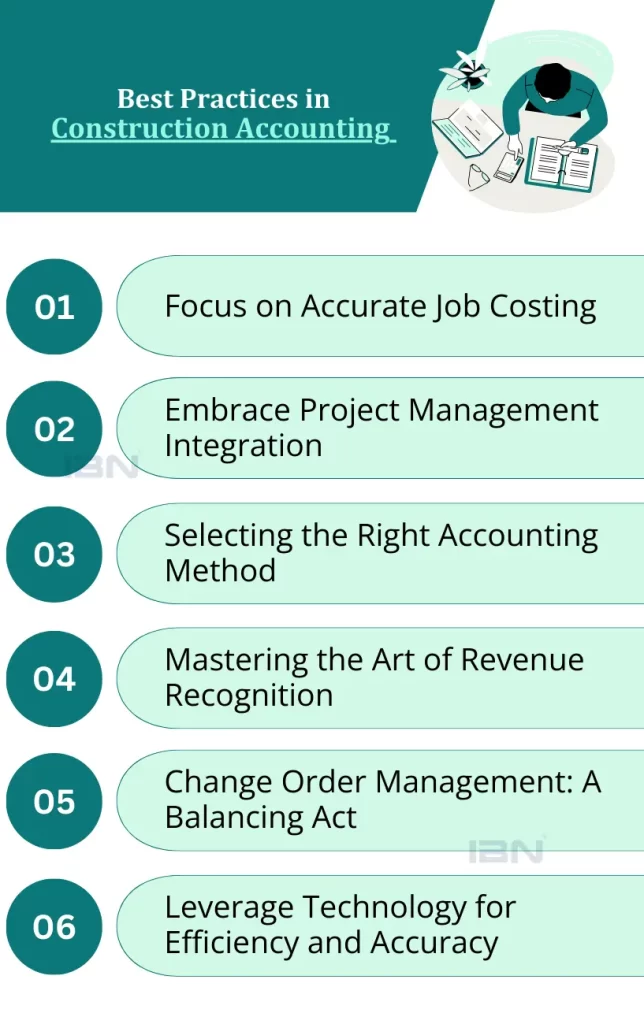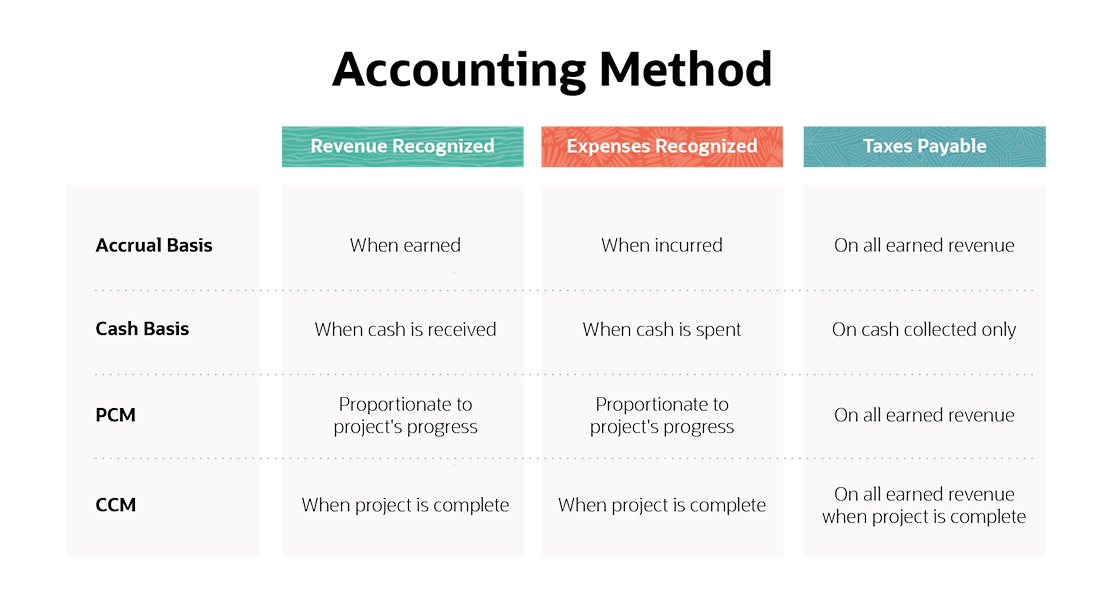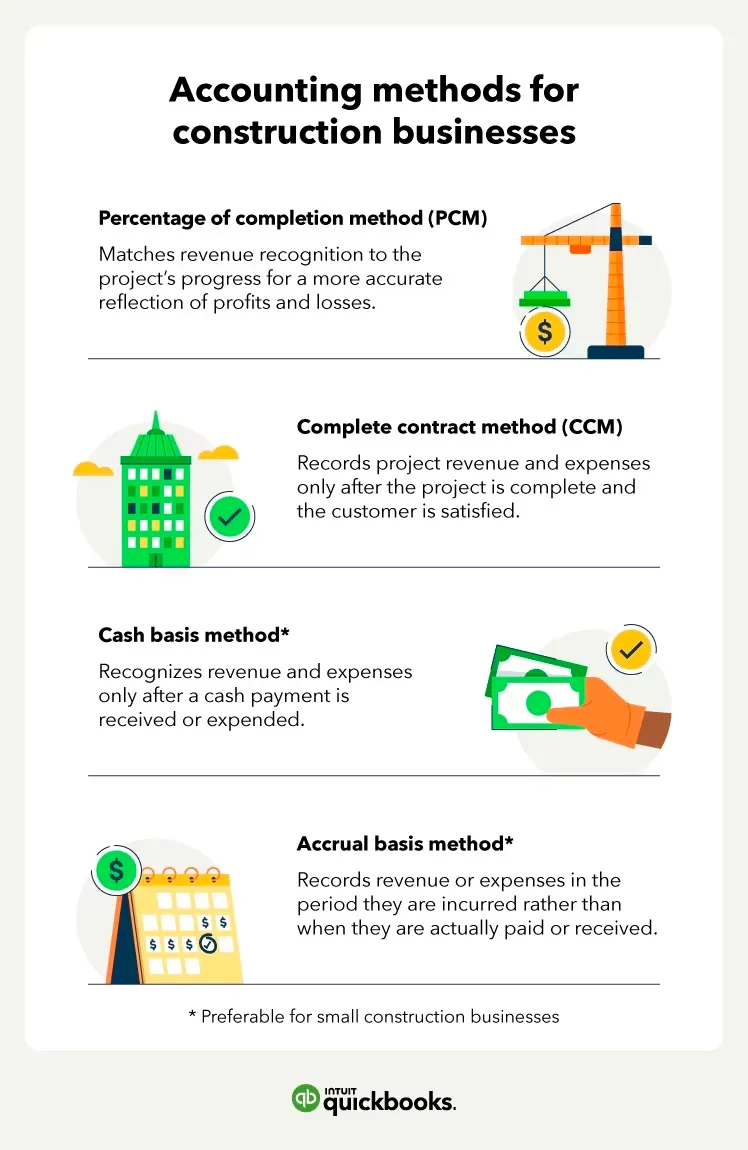Construction Accounting: Tools and Techniques to Optimize Your Financial Operations
Construction Accounting: Tools and Techniques to Optimize Your Financial Operations
Blog Article
Understanding the Relevance of Construction Accountancy for Effective Task Administration

Role of Construction Accountancy
Building audit offers as the foundation of financial monitoring in the construction market, making certain that projects are completed within budget and economic purposes are satisfied. construction accounting. This specialized audit method addresses the special difficulties faced in building jobs, consisting of varying job periods, changing prices, and several stakeholders
Among the key roles of building accountancy is to give exact cost estimation and monitoring throughout the job lifecycle. This facilitates informed decision-making, enabling project managers to change timelines and sources efficiently. Additionally, construction bookkeeping boosts capital monitoring by keeping an eye on accounts payable and receivable, thus guaranteeing that funds are readily available for prompt payments to providers and subcontractors.
It furnishes task managers with the necessary financial information to prepare in-depth economic statements, which are crucial for audits and monetary evaluations. Ultimately, the function of construction accountancy expands past mere monetary monitoring; it is indispensable to tactical planning and operational performance, driving the success of building and construction projects in a competitive landscape.
Key Components of Building Audit

Budgeting establishes a monetary structure that guides job implementation, enabling managers to designate sources efficiently and expect potential monetary obstacles. Exact expense monitoring is essential for tracking costs in real-time, aiding to identify variances in between predicted and real prices. This allows timely modifications to maintain the job on budget.
Furthermore, economic coverage provides stakeholders with a clear photo of the task's financial health. Regular reports, such as revenue and loss declarations and cash money flow analyses, promote educated decision-making and improve transparency among all parties involved.
Additionally, compliance with industry regulations and accountancy standards is vital. This makes sure that economic techniques are not just reliable however likewise authorized, securing the organization versus lawful effects. By incorporating these essential parts, building and construction bookkeeping fosters a structured method to managing financial sources, inevitably adding to the successful completion of construction projects.
Advantages for Job Managers
Leveraging effective building and construction accountancy techniques supplies project supervisors with a multitude of advantages that enhance both functional efficiency and monetary oversight. One substantial benefit is improved spending plan monitoring. Exact monitoring of revenues and expenses allows task managers to keep an eye on financial efficiency in genuine time, making certain projects remain within budget plan and promoting prompt changes when essential.
Furthermore, building and construction bookkeeping streamlines capital administration, allowing task supervisors to prepare for economic needs and enhance resource allotment. By Continue recognizing money inflows and outflows, they can better manage repayments to staff members, subcontractors, and vendors, consequently avoiding pricey delays.
In addition, robust accountancy systems offer detailed reporting abilities. Job managers can generate records that provide insights into project success, cost differences, and resource utilization. This data-driven method fosters notified decision-making, permitting managers to identify prospective concerns proactively and carry out rehabilitative steps.
Last but not least, adherence to building accounting criteria guarantees conformity with governing and legal needs, decreasing the risk of fines or disputes. Generally, reliable construction audit equips job managers with the devices essential to drive project success, improve stakeholder self-confidence, and promote lasting organizational growth.
Usual Difficulties in Building And Construction Accounting
Numerous job supervisors encounter considerable challenges in building and construction accounting that can hinder project success. One of the main difficulties is the complexity of tracking multiple task sites, each with distinct budgets, timelines, and source appropriations. This calls for thorough attention to information, find which can be frustrating without a robust bookkeeping system in area.
Additionally, changing product prices and labor rates can complicate budget plan administration, making accurate projecting challenging. Job supervisors often struggle to reconcile these expenses with actual expenses, bring about potential more helpful hints financial discrepancies.
In addition, building audit entails compliance with various regulations, including tax obligation responsibilities and labor laws. Navigating these rules can be challenging, particularly for managers who might not have a solid accounting history.
An additional considerable challenge is handling capital, which is critical in the building and construction industry. Delays in invoicing, repayments from customers, or unexpected project adjustments can create capital lacks, threatening the job's progress.
Lastly, reliable communication in between job supervisors, accountants, and area groups is essential. Misconceptions can lead to unreliable monetary reporting, even more complicating project administration efforts. Attending to these difficulties proactively is important for effective construction audit.

Finest Practices for Effective Audit
While browsing the complexities of building accountancy can be overwhelming, embracing best techniques can significantly boost monetary monitoring and task success. One basic technique is preserving timely and exact records. Carrying out durable accounting software program tailored to building and construction tasks can enhance information entrance, invoicing, and reporting, reducing errors and conserving time.
In addition, establishing a clear spending plan and regular tracking versus this budget are important. Employing a system of regular economic reviews enables project managers to determine differences early, promoting timely decision-making. It is additionally vital to different task expenses right into straight and indirect groups, allowing clearer insights right into earnings.
Another best practice involves fostering open interaction amongst all stakeholders. Normal updates and joint conversations about financial status can ensure everyone is lined up and notified. Educating personnel in construction-specific accountancy concepts better boosts expertise and precision.
Last but not least, ensuring conformity with pertinent accountancy criteria and regulations is non-negotiable. Normal audits and internal testimonials add to openness and liability, building trust with stakeholders and customers. By concentrating on these finest techniques, construction companies can enhance their audit procedures, inevitably driving job success and monetary security.
Verdict
To conclude, building audit plays a crucial duty in guaranteeing effective job management by promoting precise economic oversight and boosting decision-making. By integrating key elements such as expense evaluation, capital management, and conformity, task managers can browse common obstacles and utilize best techniques for effective audit. Inevitably, a durable building accountancy framework not just safeguards budget stability but also adds to the overall monetary wellness of building tasks, promoting lasting success within the sector.
By integrating these key elements, construction bookkeeping cultivates a structured strategy to managing financial sources, ultimately contributing to the effective completion of building and construction tasks.
Accurate tracking of earnings and expenses allows job managers to keep track of monetary performance in actual time, guaranteeing jobs stay within spending plan and assisting in prompt adjustments when essential.
Project managers can generate reports that supply understandings right into job success, cost variations, and resource usage.Several task supervisors encounter significant challenges in construction accounting that can hinder job success. construction accounting. Inevitably, a durable construction accounting framework not just safeguards spending plan honesty but additionally contributes to the total economic health and wellness of building and construction tasks, promoting sustainable success within the industry
Report this page